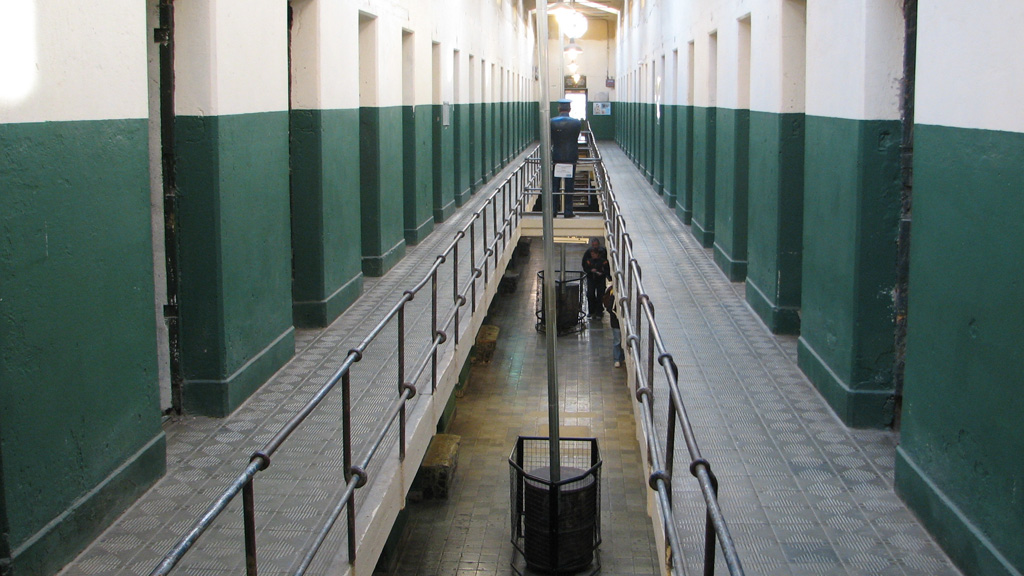Think-tank urges competition in prison sector
Private firms are better at running prisons than the public sector and all jails should be subject to open competition, says a new report by think-tank Reform.

The think-tank Reform said the government would be wrong to limit the role of private companies within prisons to small contracts such as maintenance and catering. Around 10 out of 12 privately-managed prisons have lower re-offending rates among offenders serving 12 months or more than comparable public sector prisons, Reform found.
The right-leaning think-tank also called for pay and conditions to be set locally by governors, in an attempt to try and end the national pay bargaining for prison officers.
Will Tanner, who wrote the report The Case for Private Prisons, said: “Twenty years of private prisons have created an effective market which is ready to grow. Evidence shows that a greater role for the private sector will advance the ‘rehabilitation revolution’ which ministers want to deliver.”
Private firms have been managing prisons since 1992, but in November last year Justice Secretary Chris Grayling signalled a move away from wholesale privatisation, as he decided four prisons should be run by the public sector. Two contracts to run five prisons – Acklington and Castington, which have since formed Northumberland prison, and three in South Yorkshire – will proceed to the next stage of the competition with an announcement expected next spring.
Read more: Prison closures – the key questions
‘End of competition’
Mr Grayling said private firms will be brought in to all public prisons to run maintenance, resettlement and catering to save up to £450 million over six years.
Policy groups, including Reform, said the decision amounted to the end of competition for prison management between the public and private sector, although Mr Grayling insisted it did not rule out further prison-by-prison competitions in the future.
“Evidence shows that a greater role for the private sector will advance the ‘rehabilitation revolution’ which ministers want to deliver” Will Tanner, Reform
Justice Minister Jeremy Wright said: “Reoffending rates across the entire prison estate are too high and we are pressing ahead with major reforms to tackle this unacceptable problem.
“And let’s be clear – there has been no U-turn on the use of prison competition.
“The cost of running our prisons is too high and must be reduced. The recent competition process identified a new approach for reducing costs and improving services aimed at reducing reoffending at a faster rate involving the private sector.”
“Let’s be clear – there has been no U-turn on the use of prison competition” Jeremy Wright, Justice Minister
Prison Reform Trust director Juliet Lyon said Reform’s report masked “decidedly mixed results” as some private jails have proved innovative and effective but others have been criticised.
She said: “It is almost impossible to compare the performance and reoffending rates of one establishment with another, partly because prisons hold different categories of offenders and also because prisoners often serve their sentences in a number of different jails.
“In the main, private prisons are more overcrowded and less safe than their public counterparts.
“Proportionately we hold more prisoners in private hands than anywhere else in Europe and even more than in the USA.
“Until and unless there is clear, objective evidence to show that this a good direction to take, ministers should be very wary about further privatisation.”
The Reform think-tank is funded by contributions from 64 companies including some that run private prisons. They publish full details on their website.
-
Latest news
-
FactCheck: three promises Rishi Sunak has broken

-
FactCheck: three promises Keir Starmer has broken

-
How Sudan’s Frankenstein’s monster led to war that threatens to destroy country

-
‘Rishi Sunak has learned nothing from Liz Truss’, says Rachel Reeves1m

-
‘Reform UK will become the voice of opposition’: Nigel Farage2m

-




